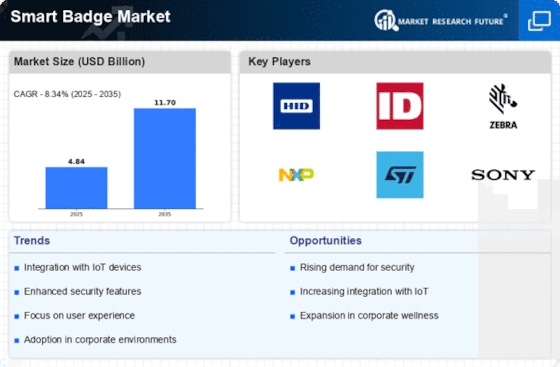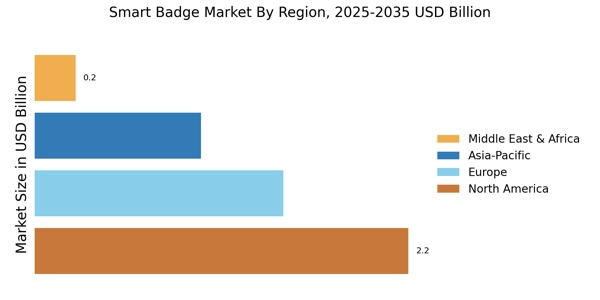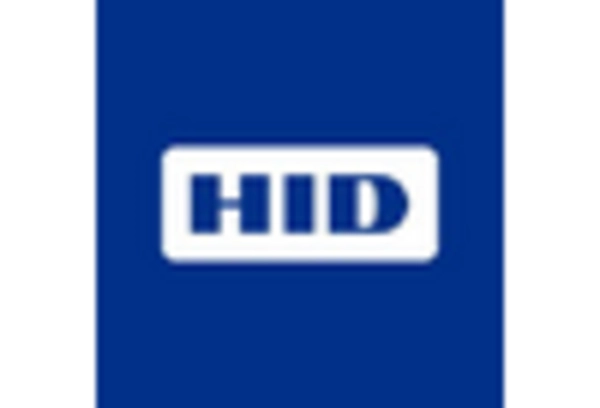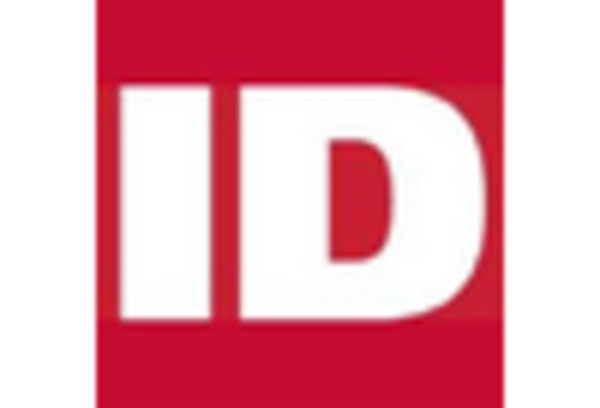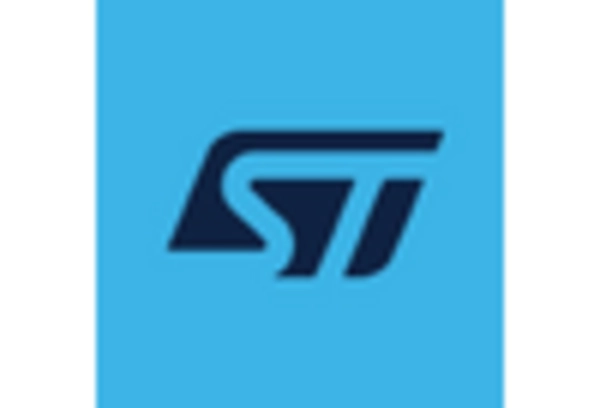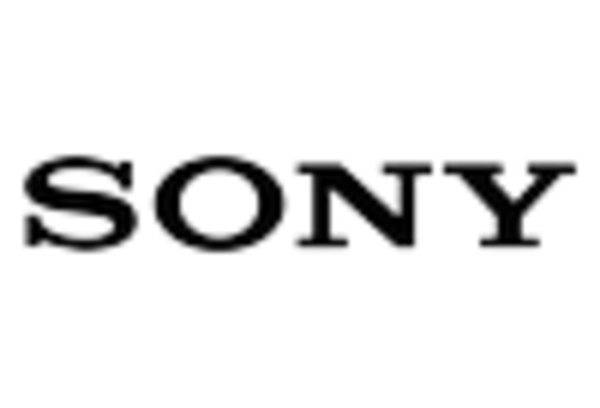Integration of Advanced Technologies
The Smart Badge Market is experiencing a notable shift towards the integration of advanced technologies such as artificial intelligence and machine learning. These technologies enhance the functionality of smart badges, enabling features like real-time data analytics and personalized user experiences. As organizations increasingly seek to streamline operations and improve security protocols, the demand for smart badges equipped with these technologies is likely to rise. According to recent estimates, the market for smart badges is projected to grow at a compound annual growth rate of approximately 15% over the next five years. This growth is driven by the need for enhanced security measures and efficient access control systems across various sectors, including corporate, healthcare, and education.
Expansion of Smart Cities Initiatives
The Smart Badge Market is poised for growth due to the expansion of smart cities initiatives. As urban areas increasingly adopt smart technologies to improve infrastructure and public services, the integration of smart badges into city management systems is becoming more prevalent. These badges can facilitate access to public transportation, government services, and secure areas within urban environments. The trend towards smart cities is likely to drive demand for smart badges, as municipalities seek to enhance efficiency and improve citizen engagement. Market forecasts suggest that the smart badge segment could see substantial growth as cities invest in technology that supports their smart city objectives.
Rising Demand for Contactless Solutions
In the current landscape, the Smart Badge Market is witnessing a surge in demand for contactless solutions. As organizations prioritize health and safety, the need for contactless access control systems has become paramount. Smart badges that utilize NFC (Near Field Communication) and RFID (Radio Frequency Identification) technologies allow users to gain access without physical contact, thereby reducing the risk of transmission of pathogens. This trend is particularly evident in sectors such as healthcare and hospitality, where safety protocols are critical. Market analysts suggest that the adoption of contactless smart badges could lead to a significant increase in market penetration, potentially reaching a valuation of several billion dollars within the next few years.
Increased Focus on Data Privacy and Compliance
In the Smart Badge Market, there is an increasing focus on data privacy and compliance with regulations such as GDPR and HIPAA. Organizations are becoming more aware of the importance of protecting sensitive information, particularly in sectors that handle personal data. Smart badges that incorporate encryption and secure data transmission protocols are gaining traction as companies seek to mitigate risks associated with data breaches. This heightened awareness of data privacy is likely to drive innovation within the smart badge sector, as manufacturers develop solutions that not only meet compliance standards but also enhance user trust. As a result, the market is expected to see a steady increase in demand for smart badges that prioritize data security.
Growing Emphasis on Employee Safety and Security
The Smart Badge Market is increasingly influenced by the growing emphasis on employee safety and security. Organizations are investing in smart badge solutions to enhance workplace safety, particularly in environments that require stringent security measures. Smart badges equipped with location tracking and emergency alert features provide organizations with the tools necessary to ensure employee safety. This trend is particularly relevant in industries such as manufacturing and construction, where safety risks are prevalent. As companies recognize the importance of safeguarding their workforce, the demand for smart badges is expected to rise, contributing to a robust growth trajectory for the market. Projections indicate that the market could expand significantly as more organizations adopt these safety measures.

